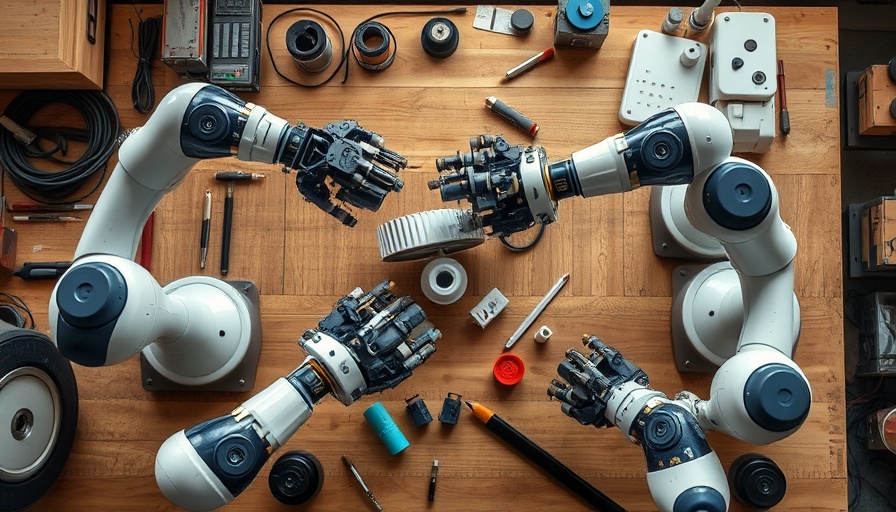
Revolutionizing Robotics with Google's Innovative AI
In an era where technology is increasingly reliant on cloud computing, Google's new AI technology, Gemini Robotics On-Device, is making waves by allowing robots to operate smarter and more efficiently without needing constant internet access. This breakthrough could transform industries ranging from manufacturing to healthcare, as robots become more autonomous, reducing the dependency on centralized data processing. Unlike traditional cloud-based systems, which can lead to concerns about data security and connectivity issues, Google's approach mitigates these risks by keeping data processing local.
What the Technology Means for the Future of Robotics
This AI innovation not only enhances the operational capabilities of robots but dramatically improves responsiveness and data security. Without the need for cloud interaction, robots can make decisions based on immediate surroundings and past experiences, leading to faster reaction times and a wider array of applications. For example, in environments where connectivity is unreliable, such as rural areas or disaster zones, robots powered by this technology can continue their tasks without interruptions.
The Broader Implications for Technology and Workforce
As automation increases, the impact on the workforce is sure to be significant. While robots have long been viewed as threats to employment, Google's AI development may redefine job roles by creating needs for oversight, maintenance, and ethical consideration in AI deployment. Furthermore, industries will demand workers who can collaborate with these advanced machines, suggesting a shift toward a workforce equipped with technology-specific skills.
Bridge Between Consumers and Innovation
The introduction of Gemini Robotics On-Device can also represent a shift toward consumer acceptance of AI technologies. With concerns about privacy and data breaches growing more prevalent, offering a solution that operates without the cloud could encourage a broader embrace of robotic integration in daily life. Imagine smart home devices that maintain service reliability without a constant internet connection. This innovative approach could foster trust in technology and open new avenues for integration into markets traditionally hesitant to adopt AI solutions.
Challenges Ahead: Addressing Potential Limitations
Despite the promising benefits, there are challenges to consider. The absence of cloud connectivity limits the extent and richness of data that can be utilized. Without real-time updates and enhancements from the cloud, robots might become less adaptive to changing environments. Plus, as industries move toward this technology, there will be a need for standardization in protocols and compatibility across different platforms.
Final Thoughts: A Step Towards Autonomous Machines
Google's Gemini AI is undoubtedly a step forward in creating autonomous machines that are efficient, secure, and capable of functioning independently. While the future may bring challenges in adapting existing infrastructures and workplace dynamics, the potential benefits of smarter, more capable robots could ultimately lead to a more productive society. As we continue to see rapid advancements in AI technology, it's crucial for us as consumers and professionals to remain informed and engaged with these developments.
If you're interested in exploring how AI might impact your life or your career, now is the time to dive deeper into the conversation about robotics. Keeping ahead of technological trends will not only benefit personal and professional growth but also empower you to actively participate in shaping the future of these innovations.
 Add Element
Add Element  Add Row
Add Row 



 Add Row
Add Row  Add
Add 


Write A Comment